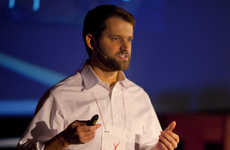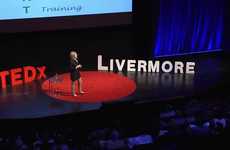
Jason Fischer Keynotes
Keynotes by Jason Fischer take a psychoanalytic approach to life. Formerly a Buddhist monk, Fischer...

Need Inspiration?
Get inspired by 4,000+ keynote speaker videos & our founder, a top keynote speaker on innovation.
Jason Fischer's Need Myth Talk Transforms Needs into Wants
Vasiliki Marapas — December 11, 2013 — Keynote Trends
References: youtu.be
In his 'need' myth talk, Jason Fischer likens 'need' to a four-letter word. In fact, despite sounding relatively innocuous, he refers to it as the most destructive word in the English lexicon for three reasons. Firstly, the word permeates our daily life from the moment we get up; it infiltrates our thoughts, our media, our everyday conversation and even our self criticisms ("I need to lose weight," "I need to quit smoking.")
Secondly, the concept of 'needing' to do things is a falsehood. Fischer makes a point to note that, though there are certainly consequences, we don't really need to do anything. The word signals an obligation when it really should be a want. This leads to Fischers' third point, that the word negatively impacts our thoughts and behaviors. Indeed, Fischer points out that the reinforcement of the word has induced an "ugh" response that continues into adulthood. One can either comply (and harbor resentment) or rebel, which are both losing scenarios according to Fischer.
His advice is to disregard the concept of need all together, transforming our need-based vocabulary into a want-based vocabulary. For, as Fischer argues, there is no pre-requisite to happiness and every "need" can be broken down into "want" or "don't want" for healthier and more honest communication.
Secondly, the concept of 'needing' to do things is a falsehood. Fischer makes a point to note that, though there are certainly consequences, we don't really need to do anything. The word signals an obligation when it really should be a want. This leads to Fischers' third point, that the word negatively impacts our thoughts and behaviors. Indeed, Fischer points out that the reinforcement of the word has induced an "ugh" response that continues into adulthood. One can either comply (and harbor resentment) or rebel, which are both losing scenarios according to Fischer.
His advice is to disregard the concept of need all together, transforming our need-based vocabulary into a want-based vocabulary. For, as Fischer argues, there is no pre-requisite to happiness and every "need" can be broken down into "want" or "don't want" for healthier and more honest communication.
0.3
Score
Popularity
Activity
Freshness

















